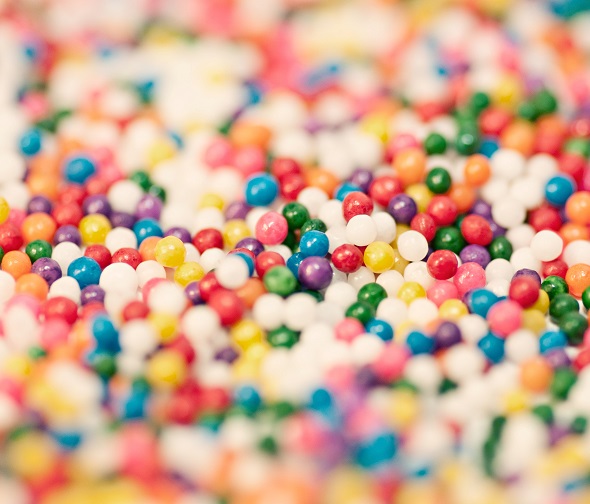
 1. steviaIt's a popular low-calorie sweetener. It's derived from a plant called stevia. Stevia leaves contain a variety of sweet compounds, among which stevia side and stevia side are the main ones. These two compounds are hundreds of times sweeter than the same amount of sugar. Despite its sweetness, stevia contains almost no calories.
1. steviaIt's a popular low-calorie sweetener. It's derived from a plant called stevia. Stevia leaves contain a variety of sweet compounds, among which stevia side and stevia side are the main ones. These two compounds are hundreds of times sweeter than the same amount of sugar. Despite its sweetness, stevia contains almost no calories.
Many studies have found the following health benefits of stevia:
n solutions providing. Our annual productivity is 2300 tonnes.
· When blood pressure is high, stevia can lower blood pressure by 6-14%. But it had no effect when blood pressure was normal or slightly elevated.
· Stevia has been shown to help lower blood sugar levels in people with diabetes.
· Studies in rats have found that stevia promotes insulin sensitivity, reduces the oxidation of low-density lipoprotein (LDL), and prevents plaque buildup in arteries.
·So if you need to sweeten a food or drink, stevia may be a healthier option.
 2. ErythritolErythritol is another low-calorie sweetener. It is a naturally occurring sugar alcohol in some fruit. However, if you buy erythritol powder, most of it is through industrial processing. Erythritol contains 0.24 calories per gram, only 6 percent of the calories of sugar, but is nearly 70 percent sweeter.
2. ErythritolErythritol is another low-calorie sweetener. It is a naturally occurring sugar alcohol in some fruit. However, if you buy erythritol powder, most of it is through industrial processing. Erythritol contains 0.24 calories per gram, only 6 percent of the calories of sugar, but is nearly 70 percent sweeter.
Erythritol does not cause fluctuations in blood sugar or insulin levels and has no effect on biomarkers such as cholesterol or triglycerides. It is absorbed into the body from insulin, but eventually excreted through the kidneys. Studies have found erythritol to be safe. However, as with other sugar alcohols, excessive consumption can cause digestive problems.
Though it has a slight aftertaste, erythritol tastes more like sugar. While it is not certain that erythritol is "healthy," it is clearly not harmful and is better tolerated than most other sugar alcohols.
3. XylitolXylitol is a sugar alcohol that tastes like sugar. It contains 2.4 calories per gram, about two-thirds of the calories of sugar. Sugar alcohols have a number of dental health benefits, reducing the risk of cavities and tooth decay. It also promotes bone density and helps prevent osteoporosis. Xylitol does not raise blood sugar or insulin levels. However, like sugar alcohols, excessive consumption can also have negative effects on the digestive system.
 4. Snow Lily syrupYacon Syrup is another very unique sweetener. Extracted from the snow drop fruit plant, it is now widely used as a weight-loss supplement after studies found it can lead to significant weight loss in obese women. The syrup is high in fructooligosaccharides and its soluble fiber nourishes bacteria in the stomach and intestines.
4. Snow Lily syrupYacon Syrup is another very unique sweetener. Extracted from the snow drop fruit plant, it is now widely used as a weight-loss supplement after studies found it can lead to significant weight loss in obese women. The syrup is high in fructooligosaccharides and its soluble fiber nourishes bacteria in the stomach and intestines.Snow drop syrup relieves constipation and offers numerous health benefits due to its high soluble fiber content. But don't eat too much at once, or it can cause digestive problems.